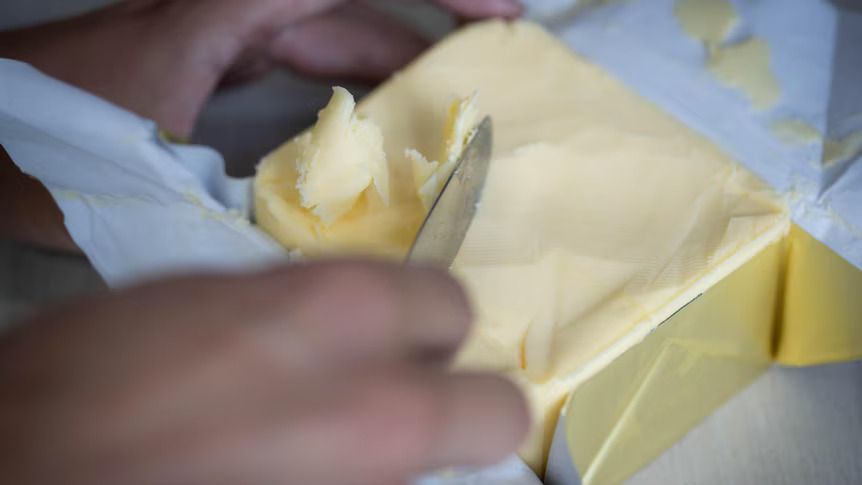
Key points:
Analysts are warning that the cost of Australian dairy products will rise
Shoppers may turn to imported dairy products as a cheaper alternative
Dairy farmers were paid record-high prices last year for the milk they produce
That is, in part, due to Australia’s dwindling milk supply, as well as continued inflation.
Rabobank senior analyst Michael Harvey said the expected price rises would come as consumers already felt squeezed by the highest food inflation in two decades.
“It’s across everything. It’s across the dairy aisle, it’s across the meat aisle, it’s across packaged goods and it’s in fresh produce … fruit and vegetables,” he said.
He said dairy inflation was also linked to the highest farm gate milk prices in Australian history for the 2021-22 season.
“Farm gate prices here in Australia jumped to record levels last year. A lot of the dairy companies have passed that through to consumers,” Mr Harvey said.
“So it’s not great for consumers that they’re paying a bit more for their dairy products. But it’s about restoring margins in the supply chain.”
Mr Harvey expected a market correction would come, but warned retail prices would be the last thing to ease.
“There’s a question natural question around ‘when do we see peak inflation?’, and we will see that eventually this year,” he said.
“The biggest challenge still is the fact that the cost of living pressures in households is only going to get worse before it gets better because we know interest rates are still rising [and] consumer confidence has fallen.”
Race for milk bumps up exports
Already, processors have begun “scrambling” for any milk they can get their hands on in Australia’s declining milk pool ahead of the next season.
Fresh Agenda dairy analyst Jo Bills said limited supply, coupled with still strong demand for dairy, would push more foreign products into consumers hands.
“We already import quite a bit of cheese,” she began.
“But … we will be importing more lower value cheese, like the mozzarella cheese that you might get on your Domino’s Pizza, no offence to Domino’s, and some of the milk powders that we just don’t have the milk for.
“In this country, we are structurally short of butter fat. So those kinds of products, those more commodity-based products, we’ll be importing and trying to make value added products to sell either here or overseas.”
For major processors like Fonterra, Bega, and Saputo, tension comes from balancing farmers, consumers, and their own commercial interests.
“We’ve got to make a buck, the farmer’s got to make a buck, and someone out there still has to pick up and love our product, a consumer. So the equation has to deal with all of those as we set prices,” said Fonterra managing director René Dedoncker.
He flagged more consolidations of milk processing factories in the future.
“We’ve been playing an active role in trying to get the balance right,” Mr Dedoncker said.
“And I still think [consolidation] needs to happen to a further extent. The reality is that, to survive, we need to match milk to assets, and there’s still an imbalance. I think there’s still more consolidation to come.”
Ms Bills agreed it was a “tough time for processors”.
“They’re kind of squeezed between two very large retailers, a very competitive global market, and unfairly high milk prices at the other end. So their incentives are really to maximise every litre of milk and make the highest value product that they can,” she said.
“Security of milk is absolutely paramount at the moment.”
Farmers awaiting new season prices
Meanwhile, dairy farmers are eyeing off next season’s milk prices after taking in a record amount at the farm gate.
And while inflation may turn consumers off more expensive brands, some retailers have turned to schmoozing farmers directly in order to shore up local supply of their private labels.
Just last week it was revealed Coles had offered its farmers lucrative three-year contracts.
“[Coles] has made the decision that they want their private label products, cheese in particular, to be Australian made,” Ms Bills said.
When asked whether they thought farmers might get higher or lower prices next season, neither Mr Dedoncker nor Bega Cheese executive chairman Barry Irvin would confirm.
“If we had that sort of crystal ball we’d be talking to farmers about it first, and they will hear about it over the next few months,” Mr Dedoncker said.
“What we are focused on is making sure it works for our farmers, works for us, and works for the consumer.”

























